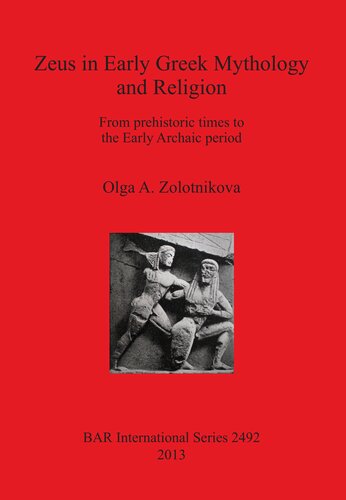

Most ebook files are in PDF format, so you can easily read them using various software such as Foxit Reader or directly on the Google Chrome browser.
Some ebook files are released by publishers in other formats such as .awz, .mobi, .epub, .fb2, etc. You may need to install specific software to read these formats on mobile/PC, such as Calibre.
Please read the tutorial at this link: https://ebookbell.com/faq
We offer FREE conversion to the popular formats you request; however, this may take some time. Therefore, right after payment, please email us, and we will try to provide the service as quickly as possible.
For some exceptional file formats or broken links (if any), please refrain from opening any disputes. Instead, email us first, and we will try to assist within a maximum of 6 hours.
EbookBell Team

4.3
88 reviewsThis monograph examines the religious and mythological concepts of Zeus from prehistoric times until the Early Archaic period. The research was performed as an interdisciplinary study involving the evidence of the Homeric poems, archaeology, linguistics,as well as comparative Indo-European material. It is argued that Greek Zeus, as a god with certainly established Indo-European origins, was essentially a god of the open sky and the supposed progenitor of everything, a supreme, but not ruling deity; initially, he must have been distinct from the god of storms, who, for unknown reasons, completely disappeared from Greek religion and mythology by as early as the Late Bronze Age. From the time of Homer, Zeus-Father appeared as a storm-god, the autocratic ruler of the universe, and an offspring of elder deities, on the level of mythology. Such a concept does not correspond to the traditional Indo-European patterns and seems to have been formed under the influence of Near-Eastern concepts of the supreme almighty god, on the one hand, and the Cretan-Minoan concept of a young god/divine child, on the other. However, the Homeric concept of Zeus was adopted by his practising cults much later, only from the Late Archaic period.